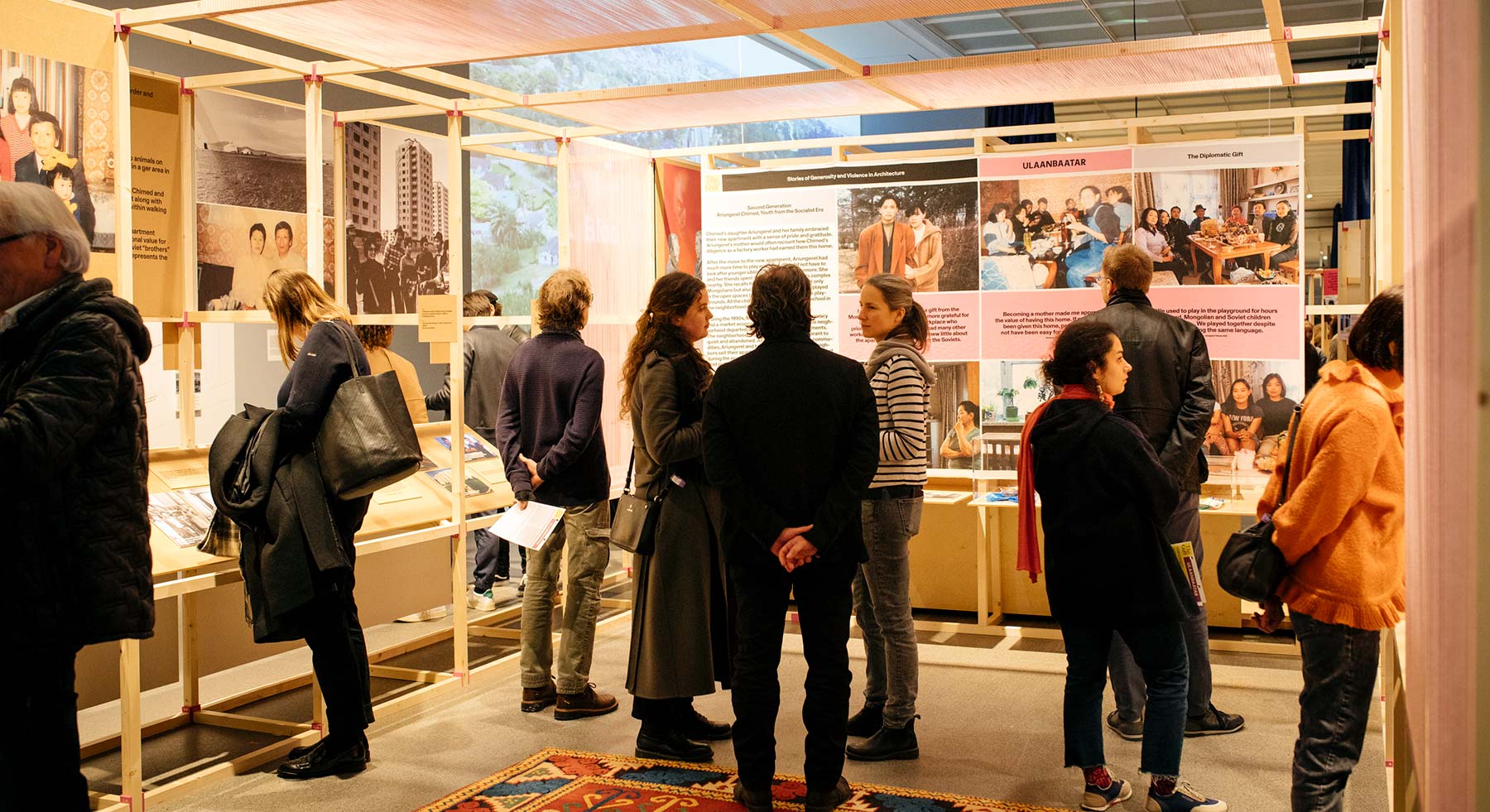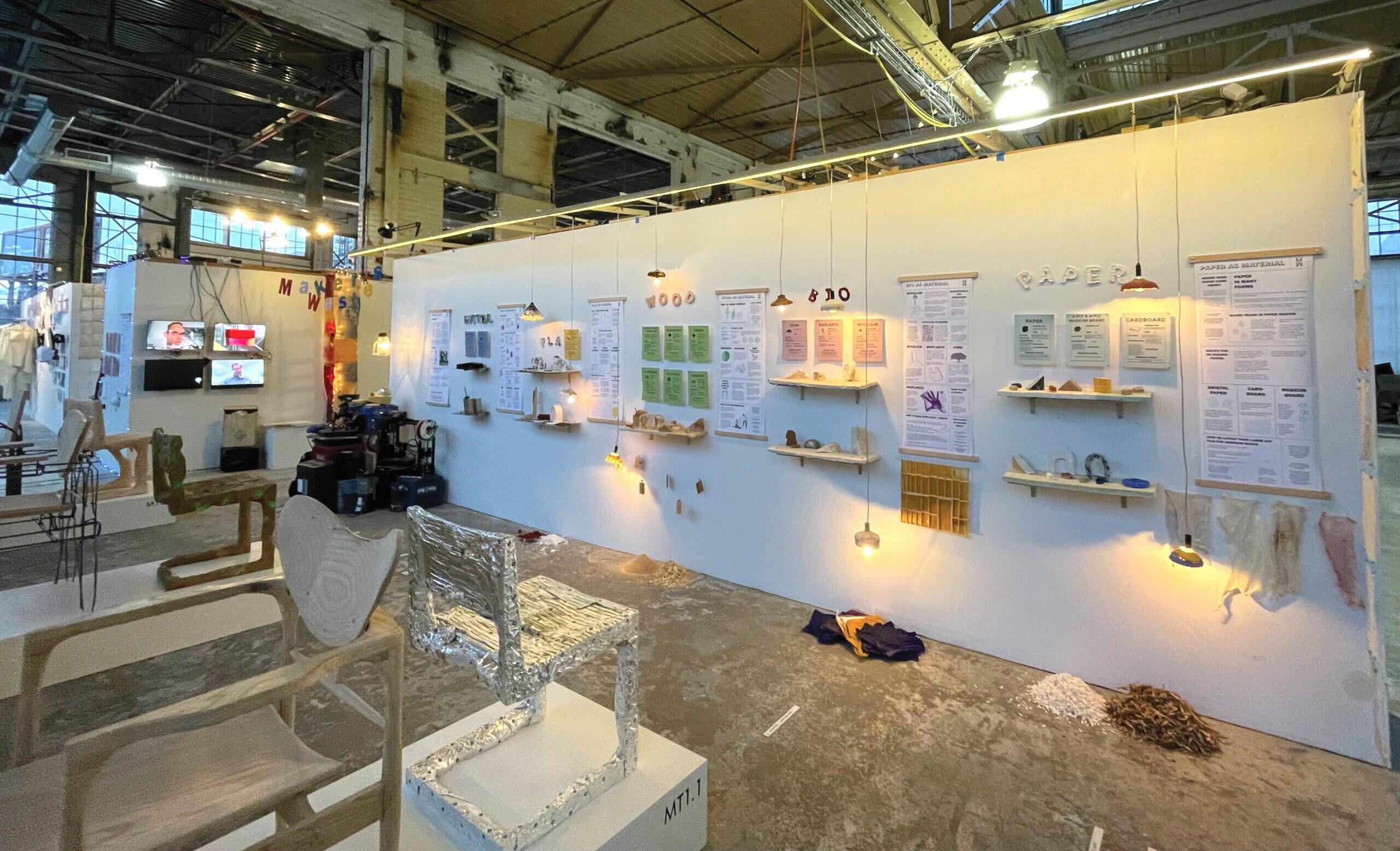The recipients of the inaugural Urban Technology Prototype Grants have different foci with a common connection: the belief that technology can improve life for people who live and work in cities. That’s exactly the idea behind the program, which announced in fall 2021 that it was seeking proposals for experimental software and hardware projects that offer new ways to engage with, think about, and push the limits of self-governance within communities and collectives, privacy in public space, and/or feedback loops within the built environment.
“Prototype Grant winning projects ask: how can automated data collection improve environmental justice? How can individuals have more control over their personal data and its use? How might children be invited to create their dream cities? Collectively these show the direction of research and thinking we are pursuing in the urban technology program at Taubman College,” said Bryan Boyer, director of the Bachelor of Science in Urban Technology program and assistant professor of practice in architecture.
The grants connect early-career professionals with Taubman College’s resources and expertise to support exciting, early-stage research. Each grantee is paired with a Taubman College faculty mentor and is receiving $5,000 in project funds and a $1,000 travel allowance for the semester-long grant. They will share the results of their work through a public event in the spring.
The three winners were selected from 30 applicants by a jury comprised of practitioners in the field of urban technology: Joshua Edmonds (director of digital inclusion, City of Detroit), Gabriella Gómez-Mont (founder and director, Experimentalista), Roy Liu (managing director and co-founder, Hercules Capital Inc.), and Michelle Ha Tucker (head of design, Sidewalk Labs).
The grant program is the latest example of Taubman College’s leadership in the burgeoning field of urban technology. Taubman College launched a new Bachelor of Science in Urban Technology that welcomed its first cohort of students in January 2022, and the college is piloting several experiments to provoke discussion, debate, and experimentation in the field. In addition, the University of Michigan is a leading center of research on cities, sustainability, digital fabrication, and new materials — all of which contribute to the emerging field of urban technology.
The 2022 Urban Technology Prototype Grant winners are:
JustAir
Darren Riley
(Taubman College Faculty Mentor: Joe Grengs, professor of urban and regional planning)
JustAir is a neighborhood level air quality monitoring dashboard. Riley will build a new tool that uses computer vision to track idling trucks waiting to cross the bridge from Detroit to Canada. The idling of trucks produces massive pollution in southwest Detroit and is a ticketable offense that is not enforced by the city. “While JustAir has successfully implemented our local monitoring technology, we are keen on responding to the community’s needs of which we serve,” said Riley. “For example, after speaking with environmental justice organizations in the state, there has been a consistent theme around diesel truck idling in communities. After volunteering with environmental justice groups on truck tracking initiatives, where we manually count trucks and videotape any idling events, I was inspired by an opportunity to automate this tracking process that could ultimately support the gaps in the anti-idling ordinance.”
Fides
Daan van der Zwaag
(Faculty Mentor: Anthony Vanky, assistant professor of urban and regional planning)
Fides is envisioned as a Blockchain-based app to enable individuals to own and control their own geolocation data and get paid when apps, companies, or third parties want to utilize it. “I believe equitable data is the necessary step in reaching Web 3.0. Furthermore, earning a few bucks every day instead of nothing can impact communities on a global scale,” said van der Zwaag. “I believe large-scale social justice can work if there is an incentive for everyone, not just the underrepresented, and if together we can work on a better solution than before. I hope to take a deep dive into the hidden layers of future urban technologies and learn along the way. By having a testable prototype, emerging technologies become tangible. Eventually, I hope that millions of people will have Fides to own and monetize their data in a couple of years, and the companies buying the data will follow.”
Tiny Town
Kay Liang and Maria Gerdyman
(Faculty Mentor: Ana Paula Pimentel Walker, assistant professor of urban and regional planning)
Tiny Town will be an online, interactive game to encourage interactive and intergenerational storytelling about cities. The goal is to get kids involved in designing and imagining their dream cities. “This project is important to us because we want to help build cities where people can belong and thrive,” said Liang and Gerdyman. “Both of us were deeply shaped by the cities we grew up in and witnessed how their rapid growth has left so many behind. The urban educators and organizers that we met along the way have inspired us to thoughtfully design experiences for people to connect with each other and the places they call home. This grant will not only fund our programming and make it free and accessible to our participants, it will also provide us with the resources and mentorship to develop Tiny Town into an urban technology that can shape the cities we care about.”




